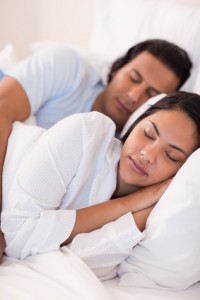 More and more research is emerging directly tying insomnia and sleep disturbances to depression and other mental illnesses
More and more research is emerging directly tying insomnia and sleep disturbances to depression and other mental illnesses
Today, we will look at the real reason sleeplessness causes depression and what you can do to beat back the effects, which is especially important this time of year.
In many countries, the actual number of hours of sunlight can diminish so much in the winter months that residents have to gather around alternate light sources and increase their intake of vitamin D in supplement form.
This isn’t just so the body can stave off the ravages of osteoporosis- it’s a critical step in keeping the body happy in all of its systems. Trouble in one will always lead to trouble in another.
Specifically, lack of sleep- chronically- will almost surely lead to depression, as evidenced by an already large but still growing body of scientific evidence.
People need sleep. It’s critical in so many functions throughout the body because a LOT happens when we are in this stage of unconsciousness. Chemicals are produced that heal muscle tissues, others are released that bathe the brain in healing neurotransmitters only released in sleep. The list goes on and on.
One of the chemical dances that occurs in the wake and sleep cycle is the production of serotonin and melatonin. Serotonin is the “happy” chemical that binds to the receptors in our brain to tell us all is well. This is built up in the body in two ways- through sleep, and through exposure to sunlight.
When we wake up at the start of our day, (whether you are a daytime waker or nighttime due to work schedules) we start using up the serotonin we accrued during the sleep cycle before waking. It keeps us going; helps us think clearly.
As the day progresses and we metabolize serotonin, it breaks down into its sister chemical, melatonin. This is the chemical that tells us we are sleepy and to close our eyes. It gets us to sleep and keeps us there through the first couple of stages of sleep. After that, the deeper stages take over and the real restoration of the body takes place.
If there is a deficit in either of these chemicals, we’re going to pay the price. Not enough melatonin will cause sleep to be difficult to find and keep- leading to a reduced amount of serotonin produced. Serotonin is critical in keeping the clouds of depression away.
Diminished levels of serotonin make the availability of melatonin drop off, thus perpetuating the cycle.
If you are already in the throes of chronic sleep deprivation, there is hope, and it doesn’t have to involve anti-depressants or sleep aids. Get your sleep cycle back on track and you won’t need either of those in the first place.

 Multiple Sclerosis
Multiple Sclerosis Banishing Bronchitis
Banishing Bronchitis Gum Disease Gone
Gum Disease Gone Overcoming Onychomycosis
Overcoming Onychomycosis Neuropathy No More
Neuropathy No More The Prostate Protocol
The Prostate Protocol Brain Booster
Brain Booster
 Ironbound
Ironbound
 Solution for Shingles
Solution for Shingles
 The Bone Density Solution
The Bone Density Solution
 The Ultimate Healing Protocol
The Ultimate Healing Protocol
 The Parkinson's Protocol
The Parkinson's Protocol
 The Chronic Kidney Disease Solution
The Chronic Kidney Disease Solution
 Overthrowing Anxiety
Overthrowing Anxiety The Fatty Liver Solution
The Fatty Liver Solution The Hypothyroidism Solution
The Hypothyroidism Solution
 The End of Gout
The End of Gout The Blood Pressure Program
The Blood Pressure Program
 The Oxigized Cholesterol Strategy
The Oxigized Cholesterol Strategy
 Stop Snoring And Sleep Apnea Program
Stop Snoring And Sleep Apnea Program
 The Arthritis Strategy
The Arthritis Strategy The Vertigo & Dizziness Program
The Vertigo & Dizziness Program The 3-Step Diabetes Strategy
The 3-Step Diabetes Strategy Hemorrhoids Healing Protocol
Hemorrhoids Healing Protocol The Erectile Dysfunction Master
The Erectile Dysfunction Master Weight Loss Breeze
Weight Loss Breeze The IBS Program
The IBS Program The Insomnia Program
The Insomnia Program The Migraine and Headache Program
The Migraine and Headache Program The Neck Pain Solution
The Neck Pain Solution The Menopause Solution
The Menopause Solution The Ejaculation Master
The Ejaculation Master The TMJ Solution
The TMJ Solution The Acid Reflux Solution
The Acid Reflux Solution The Fibromyalgia Solution
The Fibromyalgia Solution The Psoriasis Strategy
The Psoriasis Strategy
It really annoys me that one of the most important things to Blue Heron Health news is that it's customers leave a comment on face book.
I don't like face book, argh!
thanks for the information on sleep now I understand why myself and other older people who do not get enough sleep could lead to many different sickness..